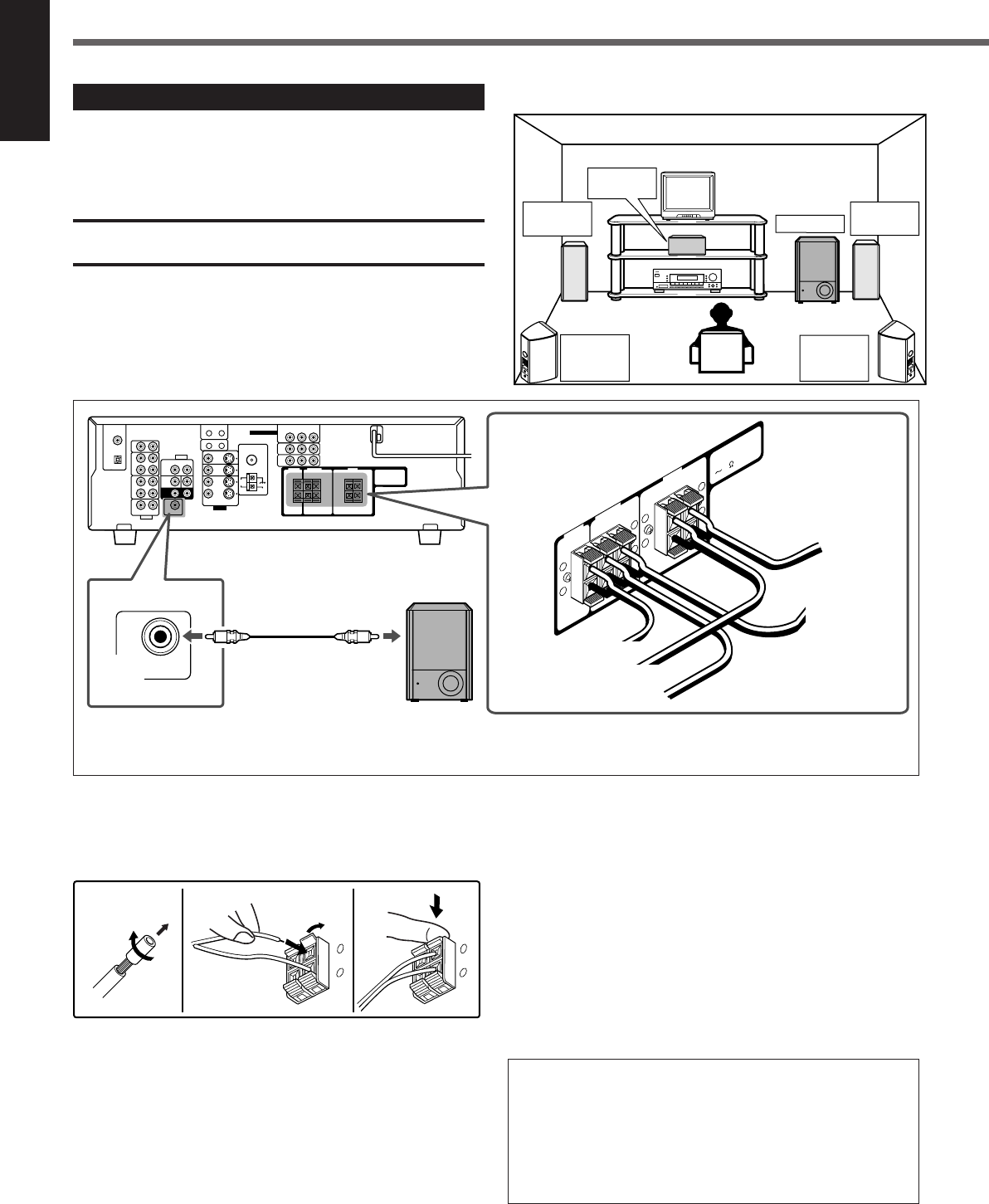
6
English
Getting Started
7 Speaker layout diagram
Connecting the Speakers and Subwoofer
You can connect five speakers—a pair of front speakers, a
center speaker, and a pair of surround speakers—and a
subwoofer.
CAUTION:
Use speakers with a SPEAKER IMPEDANCE as indicated by the
speaker terminals.
7 Connection diagram
7 How to connect speaker cords
For each speaker, connect the (+) and (–) terminals on the
rear panel to the (+) and (–) terminals marked on the
speakers.
1
Twist and remove the insulation at the end of
each speaker cord.
2
Open the terminal (1), then insert the speaker
cord (2).
3
Close the terminal.
1
2
12 3
+
–
+
–
Left front
speaker
Subwoofer
Center
speaker
Left
surround
speaker
Right
surround
speaker
Right front
speaker
CENTER
SPEAKER
SURROUND
SPEAKERS
RIGHT
LEFT
FRONT
SPEAKERS
RIGHT
LEFT
CAUTION :
SPEAKER IMPEDANCE
8
16
+
–
+
–
+
–
+
–
To left
front speaker
To right surround speaker
To center speaker
To right front speaker
To left surround
speaker
SUBWOOFER
OUT
Powered
subwoofer
To subwoofer
input
7 How to connect the subwoofer
Connect the input jack of a powered subwoofer to the
SUBWOOFER OUT jack on the rear panel, using a cable with
RCA pin plugs (not supplied).
• Refer also to the manual supplied with your subwoofer.
By connecting a subwoofer, you can enhance the bass or
reproduce the original LFE signals recorded in the digital
software.
Since bass sound is non-directional, you can place a
subwoofer wherever you like. Normally place it in front of
you.
After connecting the front, center, surround speakers and/
or a subwoofer, set the speaker setting information properly
to obtain the best possible Surround effects with your
listening conditions. For details, see pages 15 and 16.
•“NO” for the subwoofer, “LARGE” for the front speakers,
and “SMALL” for the center and surround speakers are
initial settings.
EN01-10_RX-60_5030[C]f 02.12.24, 18:406


















